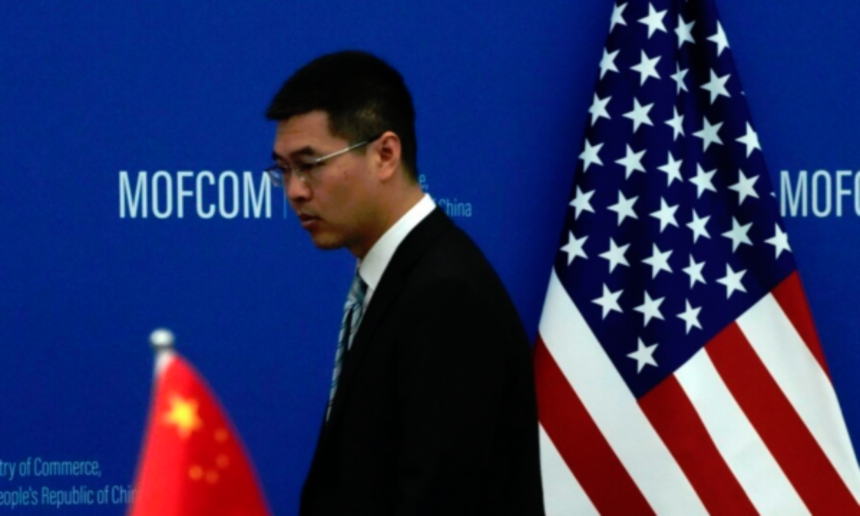China announced on Tuesday that it is halting the export of critical metals such as gallium, germanium, antimony, and other materials widely used in high-tech industries and that could be used in the military sector. This decision is seen as a retaliation against the restrictions the United States has placed on exports related to semiconductors.
The Chinese Ministry of Commerce made this announcement following the expansion of U.S. export controls targeting Chinese companies involved in the production of microchips and high-performance memory chips. These microchips are necessary for advanced applications.
The tightening of trade restrictions comes at a time when U.S. President-elect Donald Trump has threatened to significantly increase tariffs on imports from China and other countries, which could escalate tensions surrounding trade and technology.
The Chinese Ministry of Foreign Affairs also issued a firm statement in response.
“China strongly protests the U.S. decision to update its export control measures for semiconductors, impose sanctions on Chinese companies, and maliciously suppress China’s technological advancement,” said Foreign Ministry spokesperson Lin Jian on Tuesday.
“We want to emphasize that China opposes this excessive expansion of the national security concept, the abuse of export control measures, illegal and unilateral sanctions, and jurisdiction where it doesn’t belong,” added Lin.
Critical Metals Used for Microchips and Military Technology
In July 2023, China announced that it would require exporters to apply for permits to send strategic metals, such as gallium and germanium, to the United States.
In August, China’s Ministry of Commerce stated that it would limit exports of antimony, used in a range of products from batteries to weapons, and impose stricter controls on graphite exports.
These minerals are now considered critical to national security. China is a major producer of antimony, which is used in fire retardant devices, batteries, night-vision goggles, and even nuclear weapons production, according to a report from the U.S. International Trade Commission.
The restrictions announced by China on Tuesday also include other solid materials like diamonds and synthetic materials, used in various industrial applications such as cutting tools, brake discs, and protective coatings. The permit criteria announced in August also included technology for metal melting and separation and machinery related to processing these solid materials.
China has the world’s largest reserves of gallium and germanium, which are produced in small quantities but are necessary for manufacturing computer microchips, cell phones, vehicles, solar panels, and military technology.
China Defends Itself Against U.S. Trade Restrictions
After the U.S. announced it would add 140 Chinese companies to its so-called “Entity List,” which subjects them to strict export controls, China’s Ministry of Commerce protested and said it would take action to protect “China’s rights and interests.” Almost all of the companies affected by these latest U.S. export restrictions are located in China, although some Chinese-owned companies are based in Japan, South Korea, and Singapore.
Both governments argue that their export control decisions are necessary for national security.
The Chinese government is angered by U.S. restrictions on access to advanced microchips and other technologies for security reasons but has been cautious in its responses, perhaps trying not to hinder China’s emerging semiconductor, artificial intelligence, and other high-tech industries.
Various Chinese industry associations have issued statements protesting against the U.S. measures that restrict access to technologies for producing advanced microchips.
The Chinese Association of Automobile Manufacturers said it opposes the use of national security as a basis for controlling exports and, as it expressed, “abusing export control measures and maliciously suppressing China.”
“Such behavior severely violates market economy laws and the principle of fair competition, undermines the international economic and trade regime, disrupts global industrial supply chains, and ultimately harms the interests of all nations,” the statement read.
The China Semiconductor Industry Association made a similar statement, adding that such restrictions are disrupting supply chains and driving up costs for U.S. companies.
“U.S. microchip products are no longer secure or stable. Certain industries in China must be cautious when purchasing American microchips,” the statement noted.
The United States relies on China for half of its supply of gallium and germanium, according to the U.S. Geological Survey. China exported about 25 tons of gallium in 2022 and produced around 660 tons of germanium annually. The United States has reserves of these minerals but has not mined them, although some projects are underway to explore ways to tap into these resources.
Impact of Restrictions on Prices and Markets
The export restrictions have had a mixed impact on the prices of these critical minerals. The price of antimony has doubled this year to $25,000 per ton. The prices of gallium, germanium, and graphite have also risen significantly.







